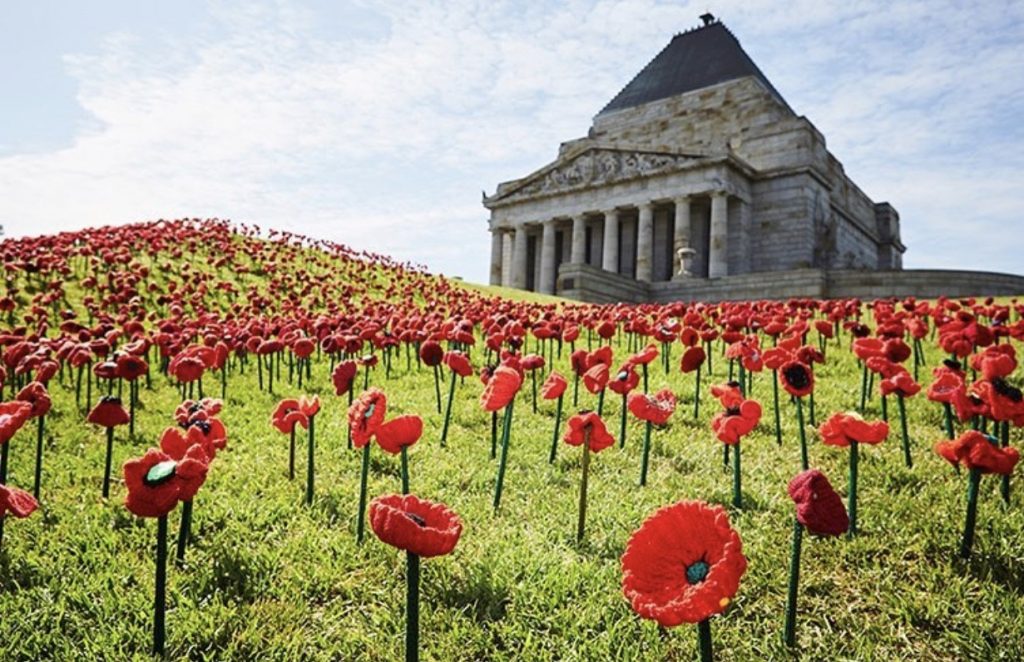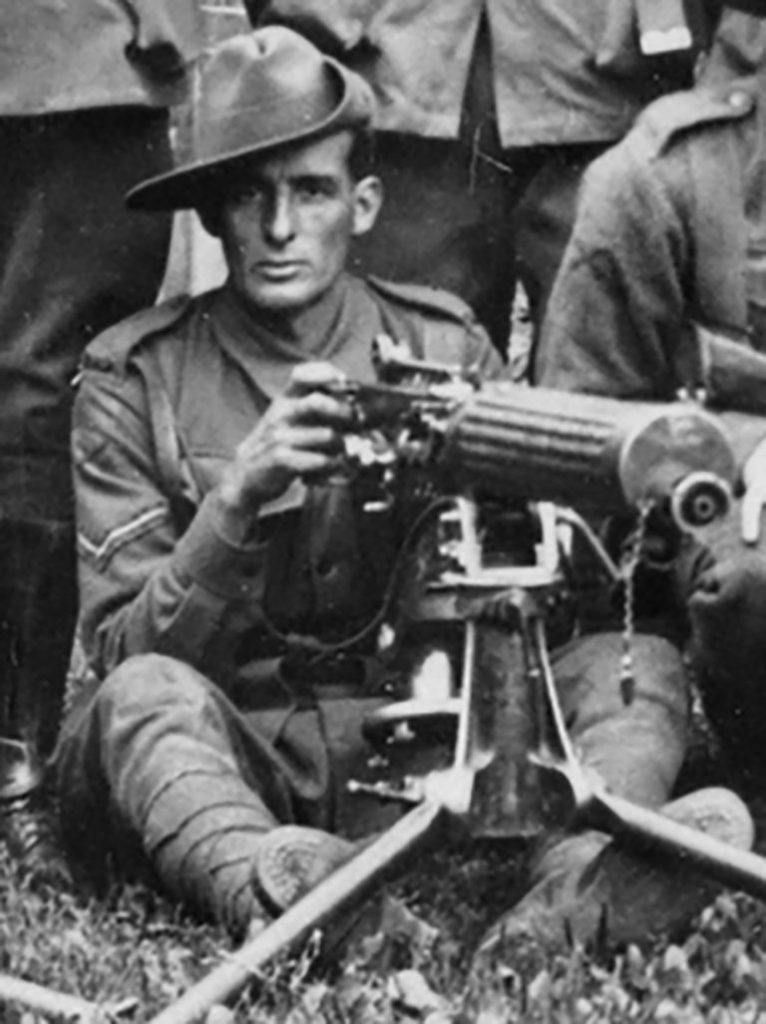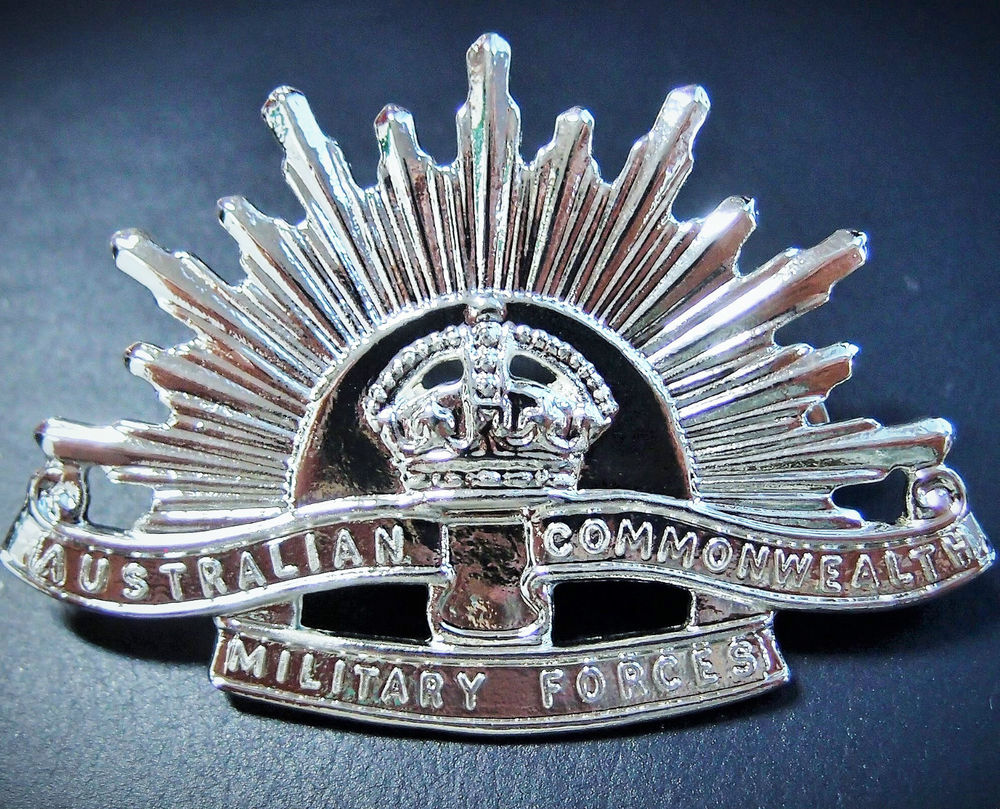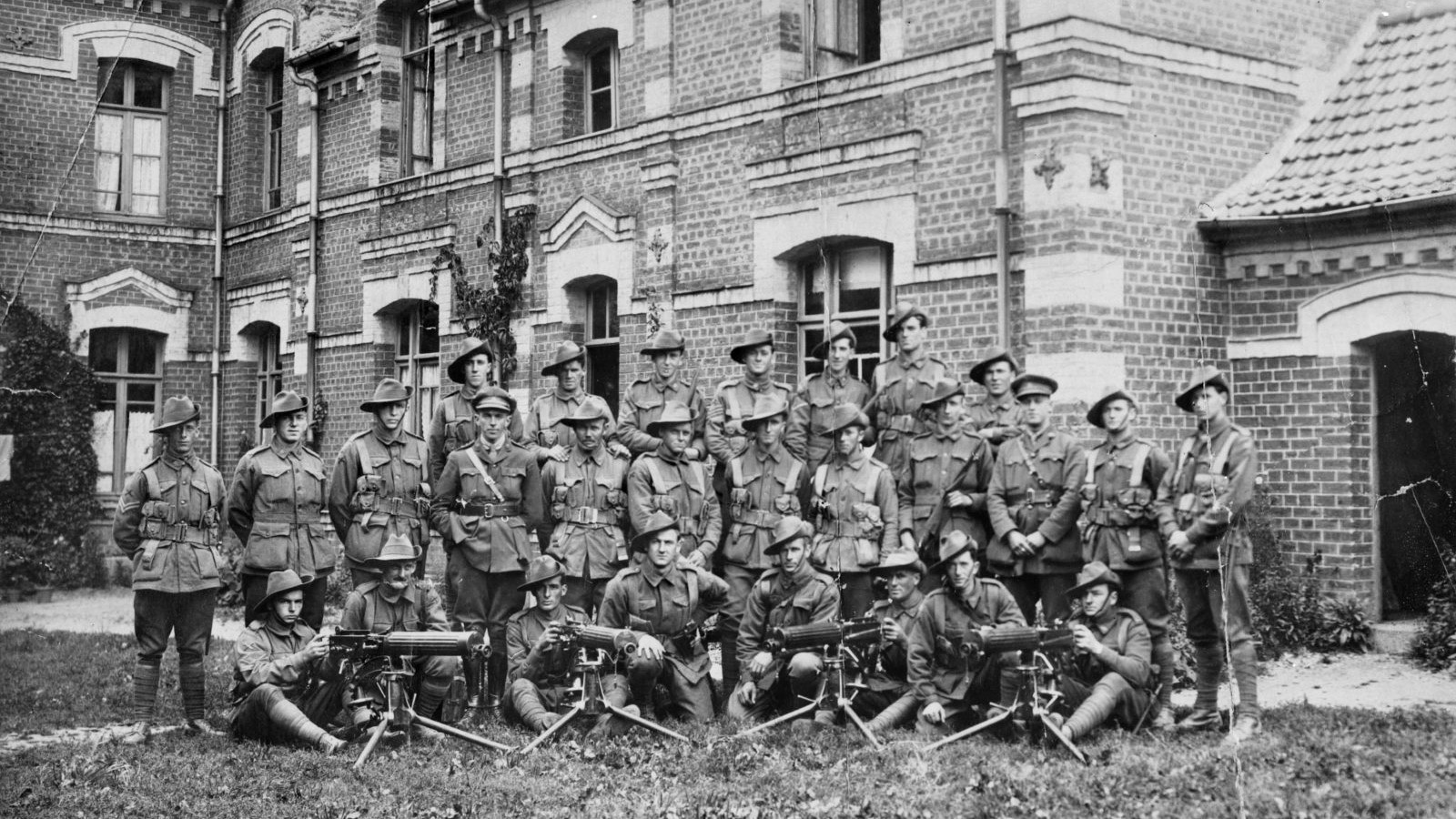By Steve Kyritsis OAM.
104 years ago, in the First World War, the guns were silent after four years of destruction, which saw around forty million civilians and soldiers losing their lives.
Since 1919 here in Australia, and in the Commonwealth Countries, we stand to a minute silence on this day to remember all those service men and women that died in the war.
From Australia, 330,000 servicemen served in World War One, with 60,000 not returning home. From Victoria, 89,000 servicemen served in the war with 19,000 not returning home.
The red poppy has become the symbol of remembrance and in France at Flanders Fields the red poppy was vast, growing amongst the dead soldiers where they were buried. It has also been said that the ground become so saturated with blood that the red poppy was the only flower that was growing amongst the graves.

Amongst the Australians in the First World War, we do know that at least 80 Greek Australians served in the Australian Imperial Forces for their new country and 55 of them were born in Greece.
Some of these men were as young as 18, Dean Casos (Dionysios Kasos) born 1898 at Hamilton, Victoria, enlisted in October 1916 and served in France in 1917.
Thomas Krocos born in Victoria in 1874, having his two sons Harry and Alexander, served in the war. Also from the family of Frank Manousos born 1880, two sons, Leonidas and Gordon, born in NSW with Leonidas killed at Pozieres France in July 1916. Brothers from the family of Zula (Zulanos), 18-year-old Julious and 24-year-old Reuben from Victoria, with Reuben killed in action in Belgium in August 1917. The Vafiopoulos family also had two sons serving, John aged 20 and George aged 21.
It is also important to note that four soldiers from the First World War also served in the Australian Forces in the Second World War, Konstantinos Aronis – Dionysios Kasos – Harry Crocos – and Mick Gunellas, with Aronis serving in the Greek Campaign in World War Two in the Australian Forces, and receiving the British Empire Medal for rescuing many British Soldiers.
We also know some great stories from Greek Australian soldiers in the First World War, such as Nicholas Rodakis, born in Athens 1880, and enlisted at Warrnambool, Victoria age 36.
In 1916, he landed in France with his unit 14th Machine Gun Battalion and at one stage was serving with the American 105th Infantry Battalion United States 27th Division, where the Americans suffered many casualties with Rodakis rescuing many American soldiers.
Sergeant Nicholas Rodakis received the Military Medal in Belgium, September 1917, and the US Distinguished Service Cross on September 1918 in France for bravery.

Rodakis was attached to a machine gun company of the 105th Infantry Battalion of the United States 27th Division, and as the Allies advanced against the Hindenburg line, the American units had suffered heavy losses. The American Platoon, with Rodakis, was cut off under fierce fire, but he rescued an officer, a machine gun and ammunition from a disable tank. He defended its position for some hours, and finally returned under cover of darkness; picking up allied wounded on the way, and returned them to safety.
He is said to have been the first Australian soldier to have received this outstanding honour. Rodakis returned home to Australia on 2 August 1919.
The story of Pandelis Kosopodiotis born Patra, Greece in 1891, enlisted at Carlton, Victoria in September 1915, age 24, and served with the 8th Field Artillery Brigade.
Pandelis was wounded in action on three occasions in France. In May 1917, he was wounded in the head and in June 1917 was wounded on two occasions in the leg. In March 1918, he returned to England where he was admitted to hospital and in 1918 returned to Australia.

Another story on Peter, when he left Greece with his other two brothers in the first decade of the century. One brother went to USA, and the other brother was never heard. Peter came to Australia and was naturalised in 1913. After joining the Australian Army, he was sent to serve in World War One in France. One night in France, he was introduced to some Greek soldiers serving with both the Australian Forces and Allied Forces. One of these soldiers, a French Officer, previously an officer with the French Foreign Legion, turned out to be his disappeared brother. They spent all night talking and catching up and parted company in the morning.
They did not meet again and no further information of what happened to his brother ever came to light.
In total, 10 Greek Australians in the Australian Forces killed in action in World War One, and 28 wounded in action.
From the 12 that served in Gallipoli, Peter Rados was the only one that died at Gallipoli at the age of 23. Peter was born in Athens in 1891. He enlisted in NSW on 18 August 1914, and served with the 3rd Battalion 1st Australian Infantry Brigade.
He is buried at ANZAC Cemetery, ANZAC COVE, Gallipoli.
WE WILL REMEMBER THEM. LEST WE FORGET.

